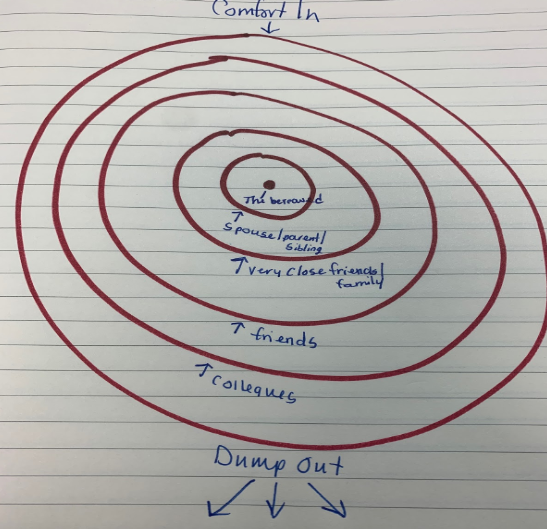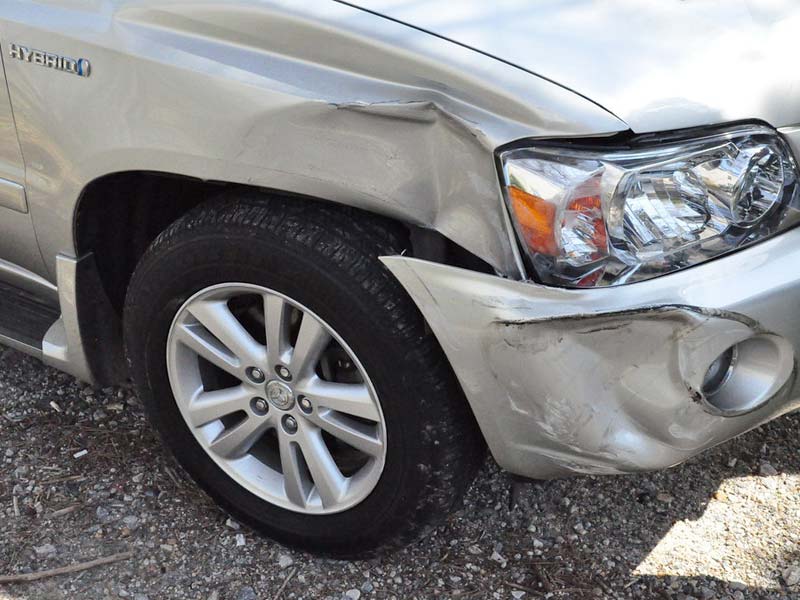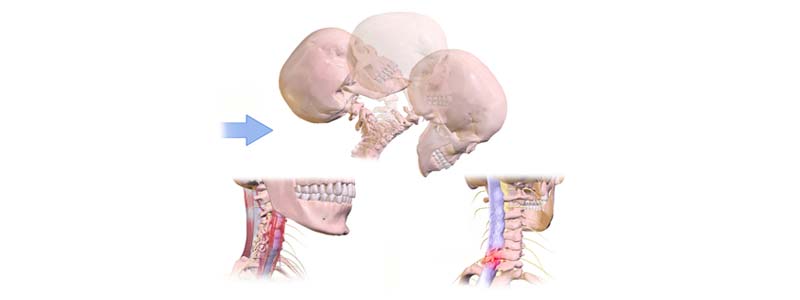
by administrator | Jul 10, 2019 | Diet, Healthy
Does it feel like you’re suddenly hearing the phrase “gut health” everywhere you go? Recent studies are making it clear that it’s time to pay attention to the well-being of the gut and focus on healthy foods for your gut. Doctors, nutritionists, allergists, dermatologists, and even mental health therapists are taking note.
At Camas Swale, we are passionate about helping our patients get and stay healthy from the inside out. Regardless of the symptoms you experience, we are here to get to the root of the problem and make a plan for your well-being. Many medical concerns stem from an imbalance in the gut, and we can help you bring balance back to your body.
What Exactly is the “Gut”?
When the medical community talks about the gut or the gut microbiome, they typically are talking about the intestines. In the past, many people saw the digestive system as merely a long tube with one job: to process food and separate it into stuff the body can use and stuff it can’t.
New knowledge, however, shows us that it is so much more complicated than that. Up to 500 strains of bacteria reside in the intestinal tract, and most of them are helpful and beneficial to a person’s overall health. These good gut bacteria help your body use vitamins and minerals efficiently, ward off viruses and harmful bacteria, and digest food properly.
The small intestine has the mighty job of allowing beneficial nutrients into the bloodstream while keeping harmful particles moving along to be excreted. When the gut microbiome is in good health, this process works well. When the gut is out of balance, and too many harmful bacteria are growing, a surprising number of problems can arise.
What Can Go Wrong?
When the microbiome in your intestines isn’t in balance, many symptoms can manifest throughout your body. Some ailments have an obvious connection to gut health, but others may surprise you. Here are some of the top indicators of a gut health problem:
- Irritable Bowel Syndrome (IBS) – Many symptoms and discomforts, such as gas, bloating, nausea, and diarrhea, get a label of IBS. In reality, much of the trouble in this area is due to poor overall gut health.
- Food Sensitivities – When the gut isn’t functioning correctly, it can allow particles to escape into the bloodstream. This is often called leaky gut syndrome. This situation happens when the lining of the small intestine becomes too permeable. When things sneak into the bloodstream that don’t belong there, the body responds in uncomfortable ways.
- Brain Fog – When patients routinely feel lethargic and unable to focus, gut microbiome imbalances are often to blame.
- Skin Irritations – Eczema, acne, and rosacea can have a gut health component. Again, if the intestine is allowing foreign objects to escape, the body will respond, and often, the responses impact the skin.
- Autoimmune Disorders – Leaky gut syndrome triggers your body to believe that it is under attack. When this happens, the immune system can turn on the body, attacking it to fend off the intruders.
The Second Brain
Physical maladies are not the only problems that can occur with poor gut health. Researchers have been learning more and more about the gut-brain connection and the link to mental health. It turns out that the brain and the gut communicate with each other in at least two ways.
They have a physical link by way of the vagus nerve. This nerve is the direct connection between the gut and the brain. They also communicate chemically by utilizing neurotransmitters and hormones that carry messages.
Have you ever been so nervous about a presentation that you couldn’t eat or felt nauseous? We all experience the gut-brain connection at different times, but most of us have never recognized it for what it is. The two parts are communicating with each other.
People often attribute stomach issues like nausea and loss of appetite to anxiety and other mental health concerns. Scientists now realize that it may go the other way. Bacteria imbalances and excessive permeability in the gut actually may be causing mental health problems.

How Do You Balance Your Gut?
The body can do a remarkable job of healing and rebalancing itself under the right circumstances. One of the best things you can do to support your intestinal health is something everyone has to do every day – eat!
The key is choosing the right gut foods for optimal health and the ones that are right for your body. The following choices may prove to be just what you need to get your gut back in order so it can serve you and your good health:
- Mangoes – These nutritional powerhouses appear to help restore healthy bacteria in the gut microbiome. They provide excellent nutrients and are a good source of fiber to boost the digestive tract.
- Yogurt – Packed with beneficial probiotics, and especially when you choose full-fat yogurt with no added sugars. These probiotic strains can help heal the lining of the gut, and help prevent food particles from leaking into the bloodstream.
- Salmon – Consuming wild-caught salmon gives your brain and gut a high dose of omega-3s. These fatty acids have anti-inflammatory properties and boost brain and gut health.
- Garlic and Onions – These pungent roots are full of prebiotics, which are food for the good bacteria in your gut.
- Fermented Foods – There is no shortage of fermented options on the market today. Just about every ancient civilization had a signature fermented food or drink, and finally, the western world is taking note. These options are critical to optimal gut health and provide significant numbers of probiotics. If you want to move beyond pickles, try any of these tasty choices:
- Kimchi
- Sauerkraut
- Miso
- Tempeh
- Kefir
- Kombucha
Camas Swale is Here to Help
Dr. Armitage is excited to help you live your best life possible. Many times, that best life needs to start by addressing your gut health. At Camas Swale Medical Clinic, we focus on the whole body as we partner with you on your wellness path. Contact us today to make an appointment.

by administrator | Jun 19, 2019 | Mental Health
There’s no real way to prepare for the loss of a loved one, and it’s especially true when the loss happens in an utterly tragic and unexpected way. Do you know that the death of a loved one ranks in the top ten list of most stressful life events, and that’s for adults? The impact a tragic loss has on children is far more significant. That’s why it’s incredibly important that, during the onset of your grief, you seek grief support in any or all forms available to you and your family.
What is Grief?
Grief is an intense and natural set of emotions following the loss of a loved one, divorce, or even the anticipation of a terminally ill friend or family member. From shock, disbelief, anger, to profound sadness and pain, grief takes on many emotions.
When you add to these emotions societal and cultural pressures like having to hold down a job, continuing education, or caring for your children – the strength and intensity of these emotions can become greater at times, or seemingly unbearable.

The 5 Stages of Grief
Because grief doesn’t necessarily end but change, there are five stages to grief most people go through. These stages are:
- Denial and Isolation
- Anger
- Bargaining
- Depression
- Acceptance
With these five stages, it’s essential to know that not everyone goes through them in that order or even back to back, and the process as a whole can take a short to a long time, all depending on the person. Here are some other important factors about grief:
Grief is Different for Everyone
Grief manifests differently depending on the person and circumstance. Some people become numb and don’t feel anything until months later, while some people feel everything right away. For some, grief comes all at once, and for others, it’s a slow process.
Further, grief shows differently for each person. This means that where one person might show their pain through crying, another might not show any emotion.
Grief is Not Linear
Grief is not a straight line of milestones you meet and move past. There is no clear starting emotion and a definite end. One moment you might be in the acceptance stage and then a week later, move back to the bargaining stage. Be patient with yourself and your loved ones.
Grief Does Not Always End, But Changes
Do not expect yourself or your loved ones to be “done” with grief. Grief doesn’t go away, but in time, it changes, and life begins to find a new normal.
Grief Needs Support
Although grief is a natural and normal reaction to loss, it’s incredibly important to seek support. When grief is suppressed or not processed in a healthy manner, it can lead to lifelong struggles with depression, suicidal thoughts, heart disease, and more.

Where to Find Grief Support
There are many ways to seek support for your grief from leaning on your inner circle to seeking counseling; what matters is that you’re working through it. Essentially, you need to TALK about it. Studies have shown that merely verbalizing our sadness and feelings reduces the actual pain they cause. With that in mind, here are some things you can to help your grief.
Talk to Your Friends
If you have that circle of friends or family that you can lean on, take advantage of it. Talk about how you’re feeling, cry, or be with them in silence. Having a steady sense of someone’s presence during the onset of loss can set you on a healthy course of grief.
Talk to Your Community
Equally as important as leaning on your friends, is leaning on people that are also grieving. Lane County offers many grief support groups that are free to the public and put on by trained professionals.
These support groups, put on by PeaceHealth, are eight-week classes put on during the day and evenings. They are free to the public and open to adults at any stage in the grieving process. Please call to learn about the times, dates, and locations.
Phone: 541-205-7400
Address: 677 E. 12th Ave Eugene, Oregon 97401
Compassionate Friends is a national non-profit organization that offers friendship and support to those in grief through loss. This ongoing support is free to the public and open to bereaved parents, grandparents, siblings, and friends.
Phone: 541-525-4857
Address: 2411 Martin Luther King Blvd Eugene, Oregon 97401
Meeting time: First Wednesday of each month at 7pm
This support group is for youth ages 6-17 and their families. There are weekly support groups and summer camps, and they are free to the public.
Phone: 458-205-7474
Address: 677 E. 12th Ave Eugene, Oregon 97401
There are many grief support groups in Lane County from churches to hospitals. If you can’t quite find what you’re looking for, don’t hesitate to reach out to us, we’re happy to help.
Talk to a Counselor
There’s something to be said about talking to a stranger about your grief, and knowing this stranger is trained and ready to help. Professional counselors are equipped to handle all the intense emotions of grief. Counselors will help you learn to cope and manage that and set you on a course to healing and overcoming.
There are many types of counselors to look for, and it can seem a bit daunting. From religious counselors to a more holistic approach – you have plenty of options. A great way to find the right fit for you is to reach out to your medical provider or ask someone you trust.
Talk to Your Doctor
There are times where grief takes on a mind of its own, and it can seem unending, which makes even the simplest of life tasks difficult. If you’re experiencing grief and having a hard time doing basic things like showering, eating, or caring for your kids, contact your medical provider immediately.

How to Support a Bereaved Friend
Grief doesn’t just affect the person that lost someone. Grief touches on everyone – and that includes friends of the bereaved. It can be hard to know what to say, what not to say, or how in the world you can help. However, being a supportive friend is simpler than you think. Here are five tips on how to love a bereaved friend.
1. Presence
Simply being present and showing up is a great way to support your friend. Here are some ways you can be present, even if your friend doesn’t want to talk:
- Sit there with them not expecting anything
- Bring dinner for the family
- Clean their house
- Send text messages letting them know you’re thinking of them
- Go to support groups with them
- Run errands for them or with them
 2. Remember the Ring Theory
2. Remember the Ring Theory
The ring theory is a practice that helps us know how to respond to tragedy or to a loved one that has experienced tragedy. It goes like this:
If the crisis or tragedy is happening to you, you’re the center circle. If the crisis or tragedy is happening to someone you love, you’re an outside circle.
Step 1. Draw a circle and in the center of it, write the name of the person experiencing the crisis.
Step 2. Now draw a larger circle around that first and write the name of the person closest to the person experiencing the crisis or loss. This is usually a best friend, sibling, spouse, parent, or maybe even you.
Further Steps: In each larger ring/circle, write the next closest person name on it.
Rules of The Ring Theory:
The person in the center of the ring can say anything he/she wants to anyone on the outer rings. Nothing is off limits, and nobody is off limits.
However, no matter what the other rings might be feeling, they need to work outward, not inward. So the outer rings can go to anyone about anything as long as it’s outward – and not going closer to the center of the rings.
The goal is this: comfort in, dump out. When you’re talking to someone close to the center of the ring, your job is to listen and help, and that’s it. It’s not your place or time to bring up your feelings. However, the outer circles are there for you should you need support as well.
3. Don’t Be Afraid to Talk About the Person They Lost
It can be hard to know if it’s OK to bring up the person your loved one lost, and more times than not – they love it. Instead of talking about memories causing pain, the bereaved enjoy learning new things. So please don’t be shy and bring up memories or stories your friend may not have heard before, and help keep their memory alive.
4. Be Gracious
Grief changes people, and sometimes it can feel like they change for the worst. If this happens, be kind and gracious and love them where they are at. Never bring up how they’ve changed and instead, allow room in your relationship for that change. Your friend might cancel plans more often, not laugh as much, or even just check-out for a while. Don’t panic; this is all a normal response to grief.
5. Be Consistent
On the onset of a tragic loss is when your friend will receive the most flowers, cards, hugs, and check-ins. However, all of these things fade over time, and that’s when your friend will need you the most. So don’t give up and consistently be a safe presence. Remember important dates, bring flowers randomly after everyone else has gone, and continue to show up.
We’re Here to Help
If you’re currently grieving or experienced a loss and you’re not sure where to go or what to do, please reach out to one of the community support groups mentioned above or contact us. We’re here for you, not just as your local medical clinic but as caring community members and family.

by administrator | Jun 13, 2019 | Community
Oregon is full of events and things to do over the summer, and the town of Creswell, Oregon and its surrounding region play host to many of those events and activities. Finding something to do during the summer months is not a difficult task. While everyone knows about The Scandinavian Festival out in Junction City, we wanted to specifically highlight what our little town in Creswell had to offer plus a few other lesser known Lane County events.
June 2019
Creswell Historical Museum Days
Every second and fourth Saturday from 11:00 am to 3:00 pm, June through November, the Creswell Historical Museum invites visitors to take in the history of Creswell and the region surrounding it during its Creswell Historical Museum Days. Visitors can learn about the Kalapuya Native Americans and their culture, as well as the early Europeans who settled in the area. The museum plays host to several exhibits and displays, as well as areas where visitors can explore their genealogical files. The museum is located in the former Methodist-Episcopal Church.
June 21st
The 110th Sangerfest Grand Concert
The Pacific Coast Norwegian Singers Association will present their 110th Sangerfest Grand Concert. This event showcases traditional songs from Norway, Scandinavia, and America. The Grand Concert will be hosted by the Eugene Norsemen chorus and will continue the tradition of their ancestors who began the Sangerfest in the late 1800s. This year’s featured guest artist is accomplished Brazilian pianist Ednaldo Borbo. Jeffery Highland is the concert accompanist. Tickets are $20, and the event will take place at the First Baptist Church in Eugene.

July 2019
July 4th
Creswell July 4th Celebration and Parade
July 4th brings in one of Creswell’s biggest events of the year – the Creswell July 4th Celebration and Parade. Every year, the Independence Day festivities begin with a community pancake breakfast before the parade and at 11:00 am, planes fly down to signal the start of the parade. The Creswell parade is full of fun entertainment, such as local marching bands, fire trucks, horses, and so much more.
The celebration continues immediately after the parade with a picnic, which includes hotdogs, hamburgers, various treats, a beer garden and several activities tailored to the kids. Kids ages 8 to 17 can head out to Hobby Field for the chance to fly in a small aircraft with their pilots. The afternoon also brings a vintage car show and performances by local bands. The day’s festivities end at dusk with a fireworks show.
July 18th – 20th
Bohemia Mining Days
This year marks the 60th anniversary of Cottage Grove’s Bohemia Mining Days, which celebrates the discovery of gold, and the history of Cottage Grove. The festival is full of various food and entertainment options such as a carnival, multiple parades, a costume contest, historical tours, live music performances, and a Gold Rush Run. There are options for the kids too, such as a treasure hunt, games, and rides. The theme for this year’s celebration is “Every Trail Tells a Tale,” and the festival will take place in Downtown Cottage Grove.
August 2019
August 23rd – 25th
Market Fest
Market Fest at The Fifth Street Public Market in Eugene returns this year to showcase local art, food, drinks, music, competitions and more. The inaugural 2018 Market Fest brought together over 25,000 area residents and visitors to enjoy craft beverages, local food, a classic car show, local vendors, an Iron Chef-style competition, as well as multiple activities for the kids to enjoy. While this isn’t in Creswell, it’s sure to feature some locals so go and show your support.
July 12th – 14th
McKenzie River Lavender Festival
Enjoy the calming scent of lavender while the bee’s work hard at the McKenzie River Lavender Festival. There will be booths of crafts, blankets, and food and drinks. Pack a picnic blanket and enjoy the afternoon snapping beautiful pictures with your phone.
Enjoy Your Summer
These are just a few of the area’s summer events, but with so many events nearby, it will be easy to keep your families busy all summer long. Remember to use plenty of sunscreen to protect you and your families skin, and stay hydrated!

by administrator | May 30, 2019 | Injuries
A car wreck can be a traumatic and stressful time. It’s easy, in the chaos of it all, to lose track of all the tasks you need to do, like taking photos of the damage, trading insurance information and license details, and calling your insurance company, etc.
In the event of an accident, taking care of ourselves gets put on the back burner, especially with more minor collisions. It’s important to take care of yourself after an accident because injuries can hide beneath the adrenaline and present themselves after the fact.
Your doctor is able to examine your body and your symptoms to see where damage has occurred and work with you to figure the best plan of action for recovery.
The Car Accident
Major accidents that total your car seem like the no-brainer time to see a doctor, but did you know that many severe injuries can occur with even the smallest fender-benders? Your doctors are trained to asses the damage that isn’t immediately visible. The likelihood that your sore neck and back are related to more than just the initial impact is high.
If police and an ambulance are called to the scene of the accident, you’ll likely get a once-over from the paramedics to make sure you’re not in immediate danger. Their job is to ensure that you’re not suffering from life-threatening injuries. They’re not trained to diagnose and treat whiplash, sprains, torn muscles or ligaments, or internal bruising.
In the minutes following your collision, your body will release a flood of adrenaline. This “fight or flight” hormone is released to help your body prepare to fight or flee from an attacker. Adrenaline, also known as epinephrine, causes your heart rate to spike, your eyes to dilate, and your body to sweat as you prepare for the oncoming onslaught (even if it’s not actually coming). This neurochemical reaction will dull your immediate pain.

Common Injuries from Car Wrecks
The obvious injuries are sore muscles, and maybe some bruises where you hit a window or the airbag. There are so many other less visible injuries that can occur, though, in even the most minor of wrecks.
Whiplash
Whiplash occurs when, at the moment of impact, your neck is rapidly pushed forward and then snapped back. This motion can cause strain to your neck and spine in both the bones and in the muscles. Symptoms from this type of injury include soreness, headaches, and lack of focus. Without treatment, pain may get worse, or contribute to further injury.
Concussion
A concussion is caused by your brain moving around in your skull, causing bruising and bleeding. Your head doesn’t need to impact a surface to get a concussion; whiplash action is enough to cause a concussion. Symptoms from a concussion include but aren’t limited to headache, loss of consciousness, confusion, nausea, vomiting, and more.
Spinal Injuries
Your spine is simultaneously the central structure of your body and one of the more delicate parts. Severe injuries in your back can cause paralysis and lingering pain, but it’s the culmination of many small injuries that cause that kind of pain. Compressed discs and misaligned vertebrae can cause severe pain with movement, pinched nerves, migraines, and a plethora of other severe discomforts.
Internal Damage
Our seatbelts are designed to flex with us in normal conditions, but under dangerous circumstances, it locks down to protect us and restrain us in our seat. When the seatbelt locks down, it can cause bruising in the abdomen and hip area. Severe bruising internally can be hidden under other symptoms.
Abrasions
If there is a hard impact with the window, steering wheel, seatbelt, or side pillar, you may sustain an impact injury. If there is any broken glass, there is a good likelihood you’ll end up with cuts from the glass. You’ll want to make sure these types of injuries are cleaned and wrapped.
Legal Reasons to See Your Doctor
After a wreck, you should be in contact with your insurance. They deal with more than just the physical damage in your car. You pay for insurance to cover personal injuries, too. Seeing a doctor covers more than just the medical bases.
- Legal documentation of injuries – If for any reason you need to involve a lawyer to settle a case relating to your collision, you’ll need medical documentation of your injuries and costs associated.
- Future pain covered – If you don’t see a doctor and get your injuries treated, but need medical coverage or disability insurance in the future, you can be denied because of previous injuries.
- Settlement for Pain and Suffering – In a worst-case scenario, you can work with a lawyer to settle the claim with the other driver’s insurance. They’ll want documentation of the injuries and any time the treatment keeps you out of work.
Hope for the Best, Prepare for the Worst
As a driver, you have a certain level of obligation to be prepared to respond in a car wreck. Obviously, we all hope to never be involved in an accident, but it’s always going to be a risk we take when we drive.
Make sure to keep your insurance, registration, and emergency contact information readily available for easy exchange. Have an emergency first aid kit in your car to deal with small injuries. Some drivers keep a checklist of things that need to be done in case of a wreck in their glove box, which takes the stress out of remembering the important tasks.
Once you’ve had clearance from the police on the scene of the accident, call your insurance agent to sort out the details they need. Then, call us at Camas Swale. We will get you in to see your doctor for a full assessment of injuries and treatments as soon as we can.

by administrator | May 24, 2019 | Healthy
Do you find yourself feeling exhausted and no amount of caffeine seems to help? Do you notice when you finally fall into bed at the end of the day, the Sandman is nowhere to be found? That could be a symptom of adrenal fatigue.
Your adrenal glands are located on the top of each kidney, and they produce hormones that aid in controlling blood sugar, burning protein and fat, and regulating blood pressure. They also react to stressors such as an illness or injury.
The adrenal glands produce two very important hormones called cortisol and aldosterone and also create other hormones such as adrenaline, and sex hormones called androgens. Most adrenal-related disorders are caused by the adrenal glands producing either too much or too little of these hormones.
What is Adrenal Fatigue?
Adrenal fatigue is defined as “inadequate production of one or more of these hormones as a result of an underlying disease.” Adrenal fatigue has many names, and can sometimes be referred to as Adrenal Insufficiency or Addison’s Disease.
Studies have shown that you may be more likely to develop adrenal fatigue if you are in a stressful environment regularly. People such as shift workers, single parents, and students – especially those working while in school, are the most common types of people to develop adrenal fatigue. Those who abuse drugs and alcohol are also likely to develop adrenal fatigue.
Adrenal Fatigue vs. Adrenal Insufficiency
While adrenal fatigue can be referred to as adrenal insufficiency, it should be noted that many physicians consider adrenal fatigue and adrenal insufficiency to be two different conditions. Adrenal fatigue cannot be detected by any test, while adrenal insufficiency can be diagnosed through a series of blood tests. Adrenal insufficiency occurs when the adrenal glands cannot produce enough hormones, or when there is damage to the adrenal glands, or if there is a problem with the pituitary gland.
Symptoms for adrenal insufficiency may include dehydration, a constant state of confusion, weight loss, feeling weak, tired, or dizzy, low blood pressure, stomach pain, nausea, vomiting, and diarrhea.
How is Adrenal Fatigue Diagnosed?
Physicians diagnose adrenal fatigue based on the patient’s symptoms. A physician may offer a blood or saliva test, but scientific studies do not support these tests to diagnose adrenal fatigue. Therefore, the results and analysis from these tests are not reliable and can’t be considered accurate.
However, because the adrenal glands produce cortisol, it is common for a corticotropin (ACTH) stimulation test to be ordered. Since the adrenal glands respond to stimulation by releasing cortisol, the stimulation test can either prove or disprove that the glands are burned out.
Aside from the corticotropin test, physicians may order other diagnostic testing to exclude the possibility of any other medical conditions, such as anemia, obstructive sleep apnea, irritable bowel syndrome, other thyroid issues, growth hormone deficiency, menopausal problems, low aldosterone or renin, or any other systemic illness. A patient’s physicians may work together to also exclude conditions such as depression or anxiety, poor diet, overtraining, or stress at home or work.
Adrenal fatigue can also be related to several other adrenal-related issues. Other adrenal-related problems can include thyroid issues, Polycystic Ovarian Syndrome (PCOS), leaky gut or intestinal permeability, anxiety, cravings, weight gain, low blood pressure, or blood sugar imbalances. There are also several other adrenal gland disorders.
Symptoms of Adrenal Fatigue
Symptoms of adrenal fatigue are said to include:
- constant exhaustion,
- trouble falling asleep,
- difficulty waking up,
- craving salt or sugar,
- unexplained weight loss,
- a reliance on substances such as caffeine,
- and nonspecific digestive issues.
It should also be noted that these so-called symptoms of adrenal fatigue are also symptoms of other medical conditions. Trouble falling asleep can be a sign of insomnia, constant exhaustion can be a sign of a mental illness such as depression, nonspecific digestive issues can be related to dietary problems, and craving salt can be a sign of dehydration. If you are experiencing any of these symptoms, you should see a doctor, to rule out the possibility of any other medical conditions.
How to Prevent Adrenal Fatigue
One of the significant ways that you can prevent adrenal fatigue is by not drinking caffeinated beverages. Easier said than done, but every time you consume caffeine, you activate the body’s fight or flight response. This starts what is called the HPA Axis – which consists of the Hypothalamus, Pituitary, and Adrenal areas of the brain, and then signals your body to release stress hormones, such as epinephrine (adrenaline), norepinephrine and cortisol.
The issue with activating your body’s fight or flight response is that instead of releasing adrenaline so that your body can react to an immediate stressor, you are training your body to release adrenaline every time you consume caffeine. Over time, your consumption of caffeine will begin to cause your adrenal glands to burn out.
Other ways that you can prevent adrenal fatigue include getting enough sleep and making time for rest and recovery. Meditation and yoga have been known to reduce your body’s cortisol levels significantly.
You should also make sure that you are getting enough vitamins in your daily routine. Specifically, vitamins such as magnesium, B and C can help prevent adrenal fatigue. Magnesium aids in calming and supporting the nervous system, improving your quality of sleep, reducing stress levels, and boosting energy production. Vitamin B is crucial when it comes to maintaining proper adrenal function, as it is your body’s anti-stress vitamin, and also aids in supporting your energy levels. As for vitamin C, your body uses this vitamin to produce stress hormones such as cortisol. When you are stressed, your adrenal glands use more vitamin C than they would on a regular daily basis.
Adrenal fatigue can be prevented, but if you think that you may be fighting it, and can’t seem to shake it, make an appointment with your healthcare provider. Your provider will be able to rule out any other issues that may be causing your symptoms and can help with a treatment plan for you.







 2. Remember the Ring Theory
2. Remember the Ring Theory



